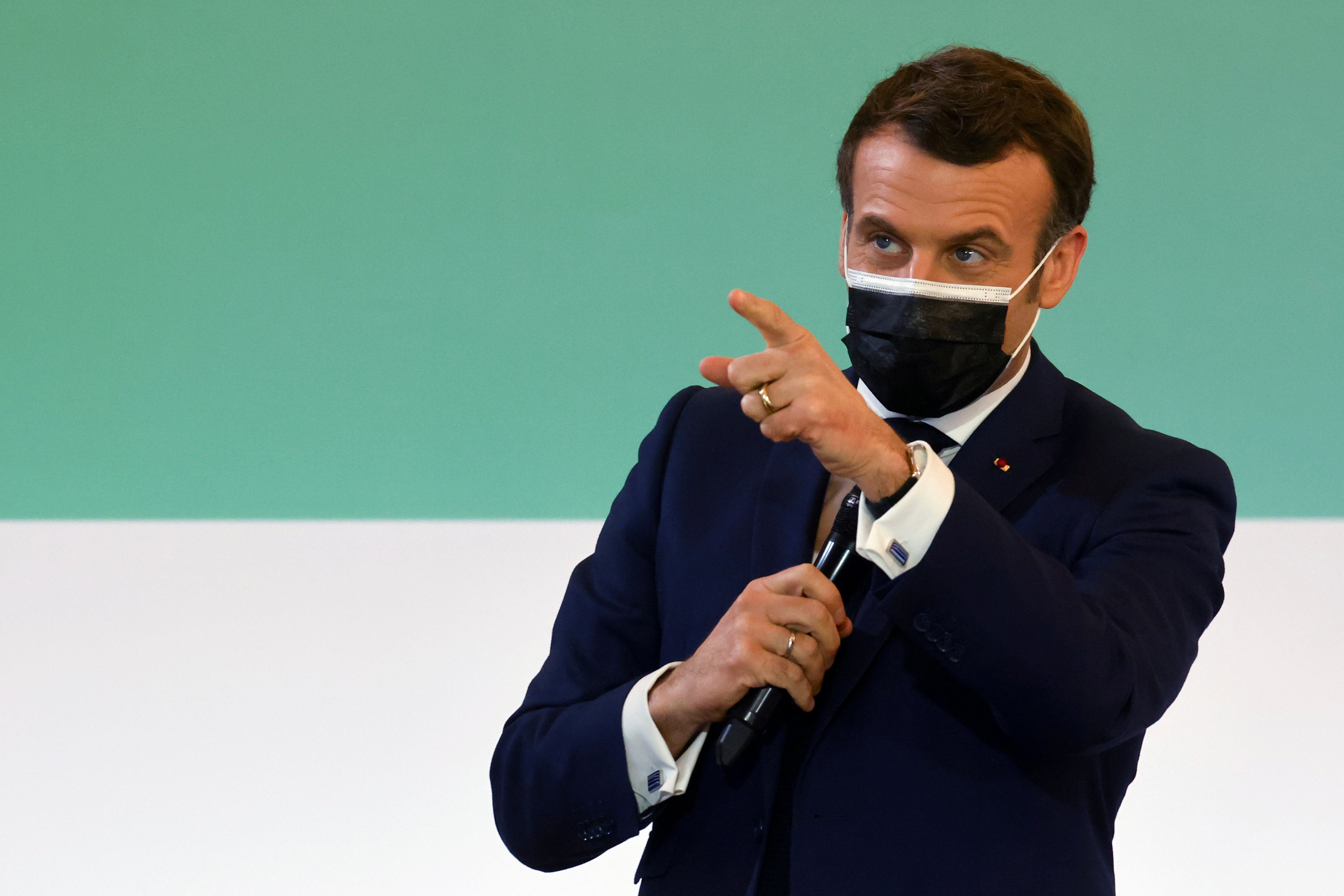50 countries commit to protect 30% of land, sea over decade
A coalition of at least 50 countries have committed to protect 30% of the planet, including land and sea, over the decade in efforts to halt species extinction and address climate change issues, during a global summit aimed at protecting the world’s biodiversity

Your support helps us to tell the story
From reproductive rights to climate change to Big Tech, The Independent is on the ground when the story is developing. Whether it's investigating the financials of Elon Musk's pro-Trump PAC or producing our latest documentary, 'The A Word', which shines a light on the American women fighting for reproductive rights, we know how important it is to parse out the facts from the messaging.
At such a critical moment in US history, we need reporters on the ground. Your donation allows us to keep sending journalists to speak to both sides of the story.
The Independent is trusted by Americans across the entire political spectrum. And unlike many other quality news outlets, we choose not to lock Americans out of our reporting and analysis with paywalls. We believe quality journalism should be available to everyone, paid for by those who can afford it.
Your support makes all the difference.A coalition of at least 50 countries have committed to protect 30% of the planet including land and sea, over the decade in efforts to halt species extinction and address climate change issues, during a global summit aimed at protecting the world's biodiversity.
About 30 leaders, government officials and heads of international organizations were participating in the One Planet Summit on Monday, which was being held by videoconference because of the coronavirus pandemic.
French President Emmanuel Macron notably announced that the High Ambition Coalition for Nature and People, which was launched in 2019 by Costa Rica, France and Britain to set a target of protecting at least 30% of the planet by 2030, has now been joined by 50 countries
A 2019 U.N. report on biodiversity showed that human activities are putting nature in more trouble now than at any other time in human history, with extinction looming over 1 million species of plants and animals.
“We know even more clearly amid the crisis we are going through that all our vulnerabilities are interrelated," Macron said.
“We can change the story if we decide it,” he added.
The one-day summit focus on four major topics: protecting terrestrial and marine ecosystems; promoting agroecology, a more sustainable way to grow food; increasing funding to protect biodiversity; and identifying links between deforestation and the health of humans and animals.
“Pandemic recovery is our chance to change course,” U.N. Secretary General Antonio Guterres said. “With smart policies and the right investments, we can chart a path that brings health to all, revives economies and builds resilience and rescues biodiversity.”
Guterres also stressed that according to the World Economic Forum, emerging business opportunities across nature could create 191 million jobs by 2030.
Amid other leaders attending were German Chancellor Angela Merkel, British Prime Minister Boris Johnson and Canadian Prime Minister Justin Trudeau. China, represented by Vice Premier Han Zheng, agreed that “collective efforts” are needed.
The event, organized by France, the United Nations and the World Bank, is taking place in the absence of top officials from the United States, as President-elect Joe Biden, a strong proponent of climate issues, does not take office until Jan. 20. Other notable absences include the leaders of Russia, India and Brazil.
Monday’s talks seek to prepare negotiations to set biodiversity targets for the next decade at a U.N. conference on biodiversity to be held in China in October, after it was postponed last year due to the pandemic. The U.N.'s global climate summit, the COP26, has also been rescheduled for November.
A side conference on Monday focused on investment for Africa’s Great Green Wall project, which involves gigantic efforts to stop the Sahara Desert from spreading further south.
Participants welcomed the creation of a so-called accelerator, which is expected to release a $14.3 billion package over the five coming years to finance the program. Launched in 2007, it consists in planting an arc of trees running 7,000 kilometers (4,350 miles) across Africa — from Senegal along the Atlantic all the way to Djibouti on the Gulf of Aden.
Amid other initiatives, Britain’s Prince Charles launched an “urgent appeal” to private sector leaders to join a new investment alliance targeting $10 billion by 2022 to finance nature-based solutions.
___
AP Science and Environment Writers Seth Borenstein and Christina Larson contributed to the story.